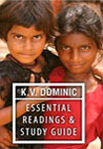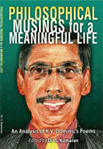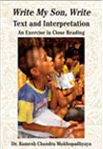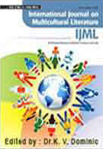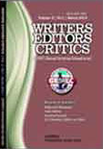Book Details
The Multicultural Matrix: Shifting Paradigms – Edited by Dr. Raichel M. Sylus & Dr. K. V. Dominic
Year Of Publish:
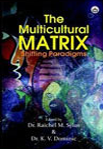
The Multicultural Matrix: Shifting Paradigms
Edited by
Dr. Raichel M. Sylus
&
Dr. K. V. Dominic
Â
Â
Preface
Multiculturalism is the word of the day, be it in literature or in any other field. When at a time the concept of ‘melting pot’ was at its pinnacle, now the trend has taken a turn where minorities assimilate themselves with the main stream society and thus there is a plethora of writings and literature. All aspects related to social integration, racial segregation, cultural assimilation, issues related to the indigenous and the minority, race and ethnicity, all fall under the banner of multiculturalism. Multiculturalism, hence is not just a diverse population alone; responding to challenges which encompass all the above is a real fete for a writer or an observer and still more a person who is part of this ‘multicultural’ behaviour. It is under this view that multiculturalism was taken into consideration for a multiple analysis by various writers.
This book titled The Multicultural Matrix: Shifting Paradigms is an endeavour to bring together various aspects of multiculturalism within the pages of a few leaves of the book. Dr. Anita Sharma’s “The Protagonist in Nadine Gordimer’s July’s People: A Victim of “Bad Faithâ€â€ analyses the protagonist’s character to substantiate the necessity of positive faith towards life. The theme of the paper is substantiated by the racial conflicts that had had occurred in South Africa. “‘White’ Values vs. ‘Red’ Culture: The Metis and Canadian Multiculturalism†by Dr. Anju K. N. discusses the various ethnic issues that exist among the native settlers or colonized, colonizers and the new races in Canada. The paper speaks for the peaceful establishment of varied ethnic, religious and linguistic backgrounds within a country.
“‘Reminiscences of Tamil Immigrants’: Experiences in K. S. Maniam’s The Return†by A. Athiappan accounts on the complexities of the Malaysian Tamil Diasporans with reference to K. S. Maniam’s The Return. It also discusses the concept of ‘The New Diaspora’ which is promoted by Maniam himself. The paper entitled “Self-Assertion of Women: A Study of the Select Poems of Kishwar Naheed, Kamala Das and Razia Khan†by Dr. S. Ayyappa Raja brings out the significance of the spirit of independence in women. Struggles in man-woman relationship are explored through the poems to highlight the inevitability of women power in decision making and their emotional make up.  “Facets of Women in the Selected Short Stories by Joyce Carol Oates†by Dr. S. Barathi is a study in depth about Carol’s women like Connie and Julie in “Where are you going, Where have you been?â€, Miranda in “The White Catâ€, etc. It discusses all the significant aspects that are related to feminism like Black Feminism, Female Binary, Oppression, Resistance and Resilience, Violence and Victimization.
“Traumas of Dalits: A Social Perspective (With special reference to Anand’s Untouchable and Balmiki’s Joothan)†by Dr. Deen Dayal mounts the struggles experienced by people through caste discrimination in India. It stresses on the requirement of sense of brotherhood among people for a better future of the nation. “Beyond The Walled City: An Exploration of Jewish Culture†by Giftsy Dorcas budges upon the discussions on the cross-religious and cultural crisis that affects the fictional city and characters of Esther David. It gives prominence to demarcate the boundaries of material and non-material culture. “Cultural Retrospection in Esther David’s The Book of Estherâ€Â by Giftsy Dorcas and Dr. Raichel M. Sylus is an appraisal of Esther David’s novels which are cultural examination of the Bene Israel community. The paper has culled out the benefits of assimilated communities with the Bene Israel community as a typical replica. “Deracination and Disintegration in V. S. Naipaul’s A House for Mr. Biswas†by M. Hamsalatha explores the identity crisis experienced by the protagonist. This paper unravels the hopeful journey of a person from the state of being none towards a person with self-identity.
Dr Lekshmi R. Nair’s “Asimov’s Foundation Universe: A Multicultural Matrix†explores the possibilities of a peaceful multicultural society through the promotion of technologically advanced and urbanized human civilization. It proves that social cohesion is significance even on the grounds of science and science fiction. “Multiculturalism and Globalization: An Analysis of the Discussions in Khushwant Singh’s The End of India†by R. Sreedevi deals with the political tensions behind the adoption of multicultural aspects for monetary benefits. The paper, entitled “Ethnic Identity, Liminality and Moral Dilemma†by K. Sreekala, throws light upon the positive aspects of multiculturalism that offer opportunities for personal reflection. This paper attempts in resolving the puzzled scenario of multicultural societies and invites the future with essential cultural harmony. “The People and the Popular: Multiculturalism in Selected Parts of Bengal†by Dr. Trayee Sinha highlights the significance of cultural diversity. The writer lays a crucial argument that acceptance of cultural diversity nurtures the positive aspects of multiculturalism and enhances progress of a nation. “Instilling Multicultural Values through Literature†by Dr. Poonam Nigam Sahay starts with Flaubert’s dictum “Read in order to liveâ€, finally ending with an advice that students should be given the opportunity to analyse literary works by native and non-native speakers of English.
Before winding up this brief preface let us express our gratitude to Dr. D. Chitra, Assistant Professor, VLB College of Arts and Science, Coimbatore and Ms. R. Sreedevi, Teaching Assistant, Avinashilingam University for Women, Coimbatore for reviewing all the articles. We are also grateful to the Librarian of Avinashilingam University for Women, Coimbatore for running all the papers for plagiarism check. We cannot conclude this preface without a mention to our dear publisher Shri Sudarshan Kcherry who came forward to publish this book in the most attractive appearance. A bouquet of gratitude to him! We will wish our readers an enlightened reading!
–Editors
Â
Contents
- Beyond The Walled City: An Exploration of Jewish Culture
Giftsy Dorcas
- Ethnic Identity, Liminality and Moral Dilemma
Sreekala K
- Asimov’s Foundation Universe: A Multicultural Matrix
Lekshmi R. Nair
- ‘White’ Values vs. ‘Red’ Culture: The Metis and Canadian Multiculturalism
- N. Anju
- Facets of Women in the Selected Short Stories by Joyce Carol Oates
- Barathi
- Multiculturalism and Globalization: An Analysis of the Discussions in Khushwant Singh’s The End of India
- Sreedevi and Raichel M. Sylus
- Self-Assertion of Women: A Study of the Select Poems of Kishwar Naheed, Kamala Das and Razia Khan
- Ayyappa Raja
- Reminiscences of Tamil Immigrants’ Experiences in K.S. Maniam’s The Return
- Athiappan
- Cultural Retrospection in Esther David’s The Book of Esther
Giftsy Dorcas and Raichel M. Sylus
- Traumas of Dalits: A Social Perspective (With special reference to Anand’s Untouchable and Balmiki’s Joothan)
Deen Dayal
- The Protagonist in Nadine Gordimer’s July’s People: A Victim of ‘Bad Faith’
Anita Sharma
- The People and the Popular: Multiculturalism in Selected Parts of Bengal
Trayee Sinha
- Instilling Multicultural Values through Literature
Poonam Nigam Sahay
- Deracination and Disintegration in V. S. Naipaul’s A House for Mr. Biswas
- Hamsalatha
- Reflections on Multiculturalism in Indian Women’s Drama and Theatre in English
- Satya Sudha

